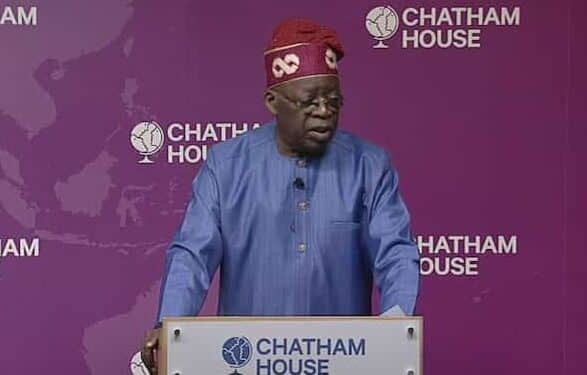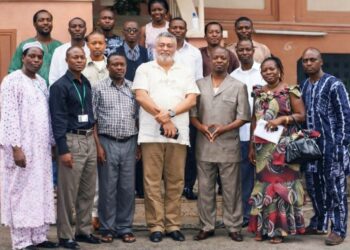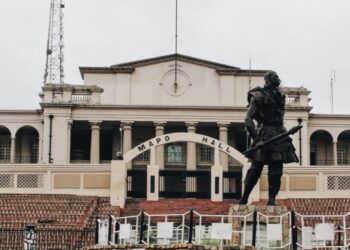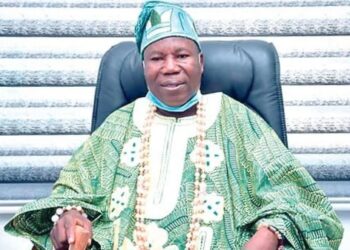On Monday, December 5, the All Progressives Congress (APC) presidential candidate, Asiwaju Bola Ahmed Tinubu, spoke at Chatham House in London on his plans for Nigeria.
The former Lagos governor spoke on various issues, including security, economy and foreign policy, before the 2023 general election.
His address was “Nigeria’s 2023 elections: Security, economic and foreign policy imperatives.
Here are the major takeaways from Tinubu’s speech. The points were extracted from a statement by the APC flagbearer’s media team led by Bayo Onanuga, reported by Legit.ng.
1. Nigeria as a big brother in Africa
Tinubu asserted that Nigeria serves as a benevolent influence in Africa, highlighting its unwavering commitment to democratic principles, which has allowed it to maintain an uninterrupted democracy for more than two decades.
He said that if elected as Nigeria’s president in 2023, he will continue to provide quality leadership to the subregion and ensure the formation of democratic ideals in the nations of the ECOWAS region.
2. Plans to improve elections
The APC presidential candidate also vowed that under his watch, Nigeria would epitomise the values of democracy during elections anywhere in Africa by ensuring that democratic ideals are followed and all forms of electoral violence rejected, allowing only the people’s will to prevail.
“Every election, wherever it is held, is important to the people or entity directly concerned. It is also important to the global democracy community as well. Equally, there are also countries whose elections, because of their weight and influence, carry wider implications beyond their immediate geographical boundaries. Nigeria is one such country.
“I stand firmly against all forms of electoral violence and intimidation. Having spent most of my career in the political opposition, I have long fought against electoral malpractice and any attempts to extinguish the legitimate choice of voters. I will continue to do so.
“And I urge all my fellow contestants in this election to do the same. Let the sovereign will of the people decide the path of our nation. And let this election be determined by voters making their choice freely rather than the domineering intimidation of the troublesome few,” he said.
“Nigeria shares direct land borders with four sister African countries with whose peoples Nigerians also share historical and cultural affinities,” Tinubu said.
He added: “This effectively means that the relationship between Nigeria and its immediate neighbours is much more than just a geographical expression.
3. Security
Tinubu also noted that Nigeria has to cooperate with neighbouring countries to ensure adequate security.
“I am convinced, as I am sure most of us are, that the broad principles that enabled successive Nigerian governments to interface development and security and establish an organic link between national security and economic development with regional peace and prosperity are both impeccable and remain relevant. It is an approach which I commit myself to uphold and advance,” he said.
Tinubu further promised to tackle Nigeria’s security situation head-on to support its neighbouring nations effectively.
He noted: “The challenges which have manifested themselves about our national and regional development and security trajectories are very well-known to all of us here: radical extremist violence, terrorism, banditry, kidnapping, human trafficking, trafficking in weapons, trafficking in d*rugs, climate change and resource-driven conflicts, etc.”
4. Energy generation and distribution
The former Lagos State governor also reiterated that effective energy generation and distribution would help build the nation’s economy.
He promised to improve the framework already in place to boost energy generation and distribution across the country.
5. Agriculture
If elected, Tinubu said his administration would emphasize using technology to improve the agricultural sector, thereby increasing production and contributing to the nation’s economy.
“The present administration has invested heavily in agriculture, providing loans and expanding the country’s total acreage of cultivated land. We will build on this but focus on using technology and expertise to accelerate growth and development by providing the critical infrastructure necessary to achieve the commodity transformations in the agriculture value chain.
“Roads, rail, access to ports, and storage infrastructure are what we require to radically transform the agriculture sector and increase its value to the nation. Providing these will be the areas of our focus so that the full potential of our agro-economy can be achieved, and we can reap the benefits in jobs, improved economic opportunities and increased prosperity,” he said.
Tinubu also said the current situation where the federal government fixes petrol prices is a broken model.
“The Federal government as regulator and operator, and price fixer is a broken model and one that we fully intend to fix if elected.
“We have privatised power distribution in Nigeria and generation to a certain degree. What we need to do, going forward, is to improve the enabling environment and further reform the legal and regulatory framework to attract more private investments in the sector as we have experienced in the telecom industry,” the APC flagbearer said.
6. Plans to engage the private sector to develop the economy
He promised to engage the private sector to drive economic development across the country better.
“My belief that the private sector is the fulcrum of economic progress is evident and documented. However, fundamental flaws with the basic design of our national economy imperil the private sector from playing the role it ought to and adding the value it is capable of. In this instance, the government must act as a catalyst.
“We shall do this on all fronts. We will address the conflict between monetary and fiscal policies. Budgeting will be based on the projected spending levels needed to push real annual growth rate above 7 per cent while reducing the unemployment rate so that we can double the economy in ten years,” the APC presidential candidate said.
7. Age, identity and certificate
Tinubu also responded to a question about his age and identity. He said his birthday remains March 29, 1952, and his age and other records are with Chicago State University. He attended Mobil Oil, which he worked with and left as Treasurer.
8. Youth development
Taking another question on youth development, he said the youths are part of today and the country’s future, and the nation needs to invest in tomorrow. He also singled out Lagos Governor Babajide Sanwo-Olu as a youth who he said is running the state, the 5th largest economy in Africa, and who is actualising the legacies he left behind as governor.
9. Tinubu invites El-Rufai, and others to respond to questions
Tinubu also invited Governors Nasir el-Rufai and Ben Ayade, former Lagos Information Commissioner Dele Alake and APC National Woman Leader Dr Beta Edu to respond to questions within their core competence areas.
His media aide said the APC flagbearer made the move to demonstrate his team spirit, though some Nigerians criticise him for not answering the questions alone.










